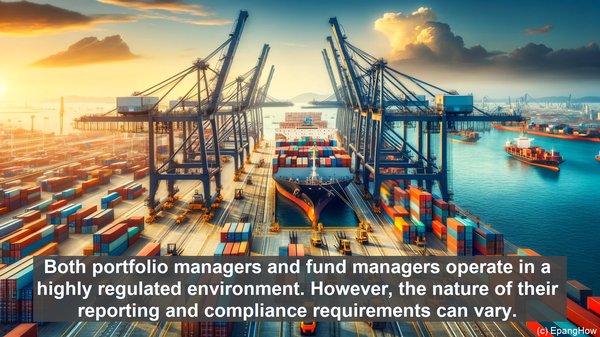Introduction: Navigating the World of Investment Management
Hello and welcome to our video on the difference between a portfolio manager and a fund manager. In the vast landscape of investment management, these two roles play a crucial part. While their objectives may align to some extent, their day-to-day responsibilities and the scope of their work differ significantly.
Defining the Roles: Portfolio Manager and Fund Manager
Let’s start by defining each role. A portfolio manager is an individual or a team responsible for managing a portfolio of investments. This could include stocks, bonds, real estate, or other assets. Their primary goal is to maximize returns for their clients or investors while considering risk tolerance and investment objectives. On the other hand, a fund manager oversees a specific investment fund. This could be a mutual fund, an exchange-traded fund (ETF), or a hedge fund. Their responsibilities include selecting and managing the fund’s assets, ensuring compliance with regulations, and communicating with investors.
Scope of Work: Portfolio Manager vs Fund Manager
The scope of work for a portfolio manager is broader. They have the flexibility to manage a diverse range of assets, often customizing the portfolio to suit individual client needs. This could involve conducting in-depth research, analyzing market trends, and making strategic investment decisions. In contrast, a fund manager’s work is more focused. They are primarily concerned with the performance of the specific fund they manage. This involves monitoring the fund’s holdings, rebalancing the portfolio when necessary, and ensuring the fund’s performance aligns with its stated objectives.
Client Interaction: Portfolio Manager’s Advantage
One key aspect where portfolio managers have an advantage is client interaction. As they work closely with individual clients, they have a deeper understanding of their investment goals, risk appetite, and preferences. This allows them to tailor the portfolio accordingly, providing a more personalized approach. Fund managers, on the other hand, have a larger pool of investors. While they may not have the same level of individual customization, they often have the advantage of economies of scale, managing larger funds with potentially lower costs.

Regulatory Environment: Compliance and Reporting
Both portfolio managers and fund managers operate in a highly regulated environment. However, the nature of their reporting and compliance requirements can vary. Fund managers, especially those overseeing publicly traded funds, have more stringent reporting obligations. This includes regular disclosures of the fund’s holdings, performance, and any material changes. Portfolio managers, while also subject to regulations, may have more flexibility in terms of reporting, as their clients are often institutional investors or high-net-worth individuals.

Collaboration: Interactions within the Investment Firm
Within an investment firm, portfolio managers and fund managers often collaborate closely. While their roles may be distinct, their insights and expertise can complement each other. For example, a portfolio manager’s research and analysis can inform a fund manager’s decision-making, while a fund manager’s understanding of market dynamics can provide valuable input to a portfolio manager’s strategy. This collaborative approach ensures a holistic and well-informed investment process.
